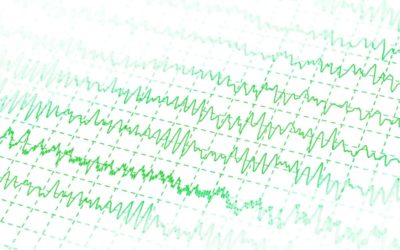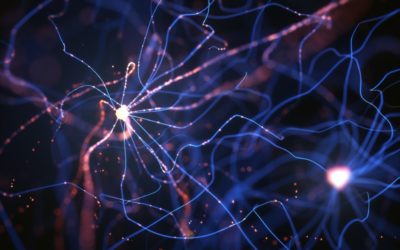Quick Hits
Daily brief research updates from the cognitive sciences

Understanding the link between dementia, brain health, and various metabolic disorders such as obesity is important and gives us important clues in guiding brain health particularly as we age.
Researchers around Amanda Lumsden of the University of South Australia have just published the results of a large-scale study and found some interesting corelations.
In this study they analysed data from 26,239 people in the UK Biobank and found that those with obesity related to liver stress, or to inflammation and kidney stress, had the most adverse brain findings. They measured associations of six diverse metabolic profiles and 39 cardiometabolic markers with MRI brain scan measures of brain volume, brain lesions, and iron accumulation, in order to identify early risk factors for dementia.
People with metabolic profiles linked to obesity were more likely to have adverse MRI profiles with:
-
- lower hippocampal volume (key memory centre)
- grey matter volumes (grey matter is related to general cognition)
- greater burden of brain lesions
- higher accumulation of iron
What was also surprising is the relationship to an individual’s Basal Metabolic Rate (BMR) – the BMR is how much energy your body uses when resting. This BMR is higher in those with obesity but it sems that the BMR is more influential on adverse brain markers than anything else.
So, it seems that a better measure is the BMR – this may sound surprising i.e. using more energy while resting might sound like a good fat-burning trick but it may also represent lower activity – when we ramp up activity metabolic rate increase during activity but sinks lower while resting. This may give your cells a better rest, recovery, and reset.
So, metabolism is a better predictor of brain health – and lower resting metabolism is actually related to higher general activity. Therefore, get moving to help avoid dementia and adverse brain effects!

Andy Habermacher
Andy is author of leading brains Review, Neuroleadership, and multiple other books. He has been intensively involved in writing and research into neuroleadership and is considered one of Europe’s leading experts. He is also a well-known public speaker, speaking on the brain and human behaviour.
Andy is also a masters athlete (middle distance running) and competes regularly at international competitions (and holds a few national records in his age category).
References
Amanda L. Lumsden, Anwar Mulugeta, Ville Petteri Mäkinen, Elina Hyppönen.
Metabolic profile based subgroups can identify differences in brain volumes and brain iron deposition.
Diabetes, Obesity and Metabolism, 2022
DOI: 10.1111/dom.14853
More Quick Hits
Espresso Combats Alzheimer’s
Quick HitsDaily brief research updates from the cognitive sciences ay, more good news for us coffee drinkers! I am always interested in the research that is coming out with regard to coffee as a coffee drinker. Yes, so I am biased. Coffee had been...
New Brain Signature of Empathy Discovered
Different areas of the brain are associated with empathy – this new research shows how brain regions synchronise to induce empathic responses.
How Your Silent Synapses Boost Brain Power
A new form of “dark matter” has been proven to exist in the brains of adults – that’s good news!
Scientists Say They Know the Secret to Waking Up Alert
Who doesn’t want to wake up alert and sprightly – researchers may have the answer…
How Your Brain Slows You Down When You’re Sick
We all know that feeling of wanting to curl up and sleep when sickness hits – but how that is controlled was unknown. Until now that is…
How Immune Cells Can Rejuvenate Your Brain
There are many ways to rejuvenate your brain – but this is a new mechanism discovered…






